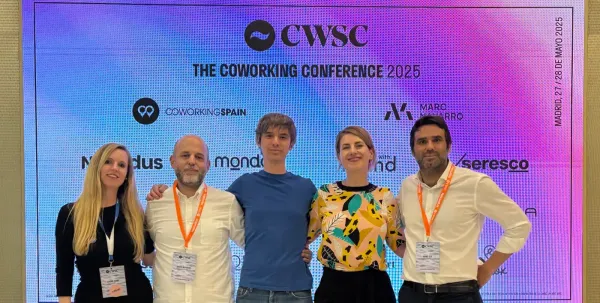The Coworking and Coliving Conference Spain 2023 this year was held in Valencia and Cobot had not only the pleasure of attending but also sponsoring it. With a wide variety of speakers from around the world and many experts from the industry in Spain, the conference provided an excellent opportunity to keep up-to-date with the latest happenings in the coworking world.
Before we talk about the conference and our highlights, we need to talk about a short interview Cobot did with Marc Navarro before the event got underway.
Marc highlighted a few important coworking trends that he has noticed recently. The first is the apparent death of memberships; larger coworking spaces don’t seem to be offering fixed desk contracts anymore. He gave the example of Utopicus, and while there are many individual coworkers, they seem to be drawn more to smaller spaces and seek more community interaction.
The second trend he mentioned was around flexibility. Both large and small spaces need to offer more flexibility in terms of membership commitment. This includes day passes, but also encompasses new products such as daily office rentals. This opens up a huge opportunity for software providers, but to make it work, the process needs to be fully automated.

The State of Coworking in Spain 2022-2023 — Manuel Zea, CEO of CoworkingSpain.es
With these trends in mind, and open to hearing more about developments within the coworking industry, we headed to the first presentation of the conference. The talk gave an overview of the coworking landscape in Spain and was presented by Manuel Zea, the CEO of CowokingSpain.es. With over 1092 active coworking spaces in Spain, the market is huge, added to that there is an estimated 1.2 million square meters of coworking space generating over 120 million euros annually.
With this in mind, Manuel explained that it can be very difficult for operators to know the true size of the market that they are a part of. Not only that, but also how the market is distributed, where the market is saturated, and where there are gaps in the market. Interestingly enough, Manuel notes that there is a large part of the coworking market in the hands of big companies competing with each other. However, a lack of flexibility from these large operators means that corporate clients are generally opting for smaller and more agile operators.
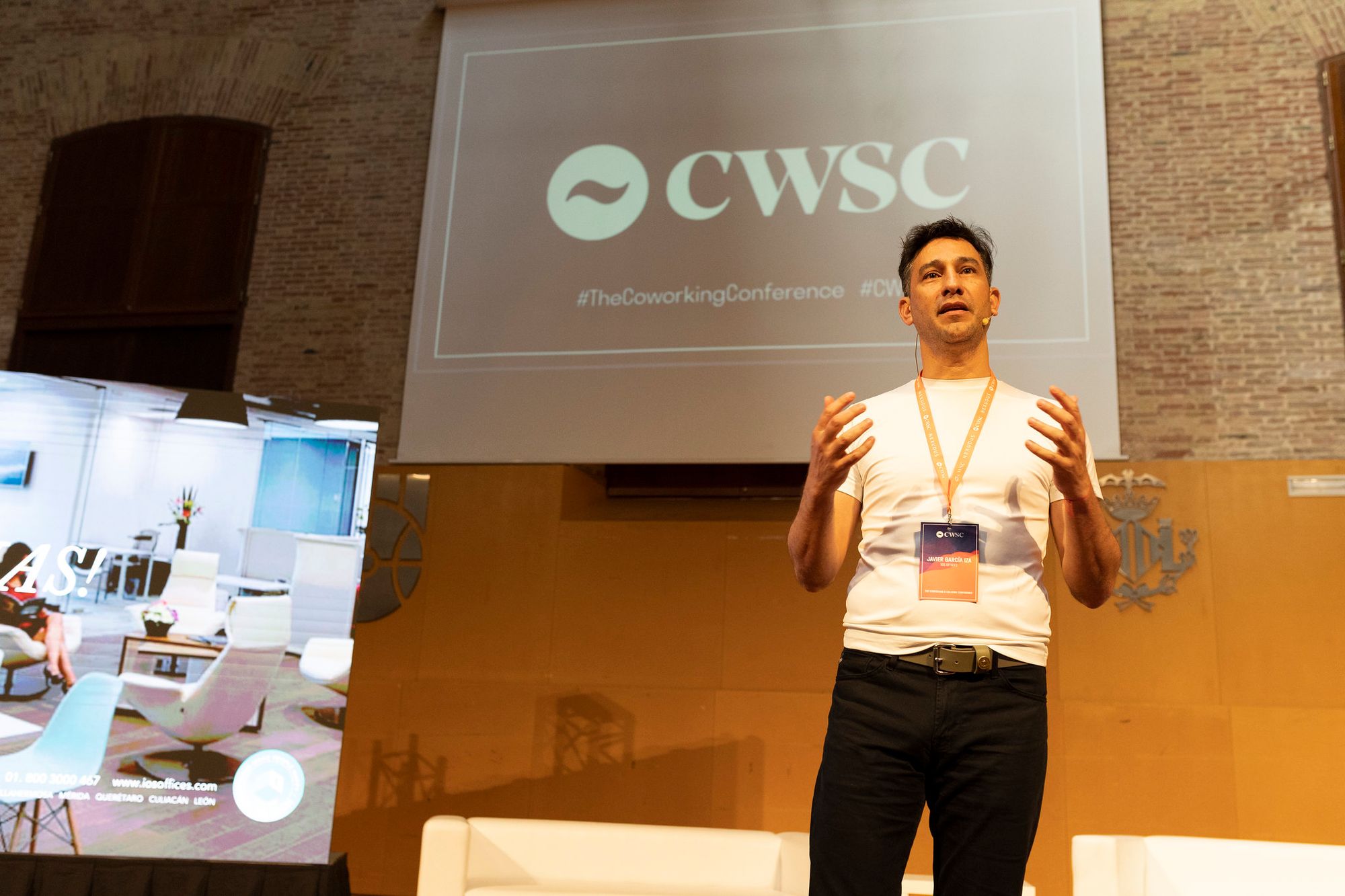
IOS Offices: Leading the industry in Mexico — Javier García Iza, CEO of IOS Offices
Javier García Iza, CEO of IOS offices in Mexico was the next presenter on stage, taking us through the journey of his company IOS Offices. The central question Javier posed for his presentation was, how does a local flex-space operator manage to dominate one of the most important markets in Latin America? Furthermore, if you look at the dominating operator in many markets, it is usually a multinational company, not a home-grown local operator.
With over 40 locations in Mexico, Javier has shown us the importance of thinking big and being driven by a strong and ambitious vision to build something impressively big and successful. But the other side of the coin is also important, not becoming a workaholic, instead making time to give something back, and working beyond personal gain.
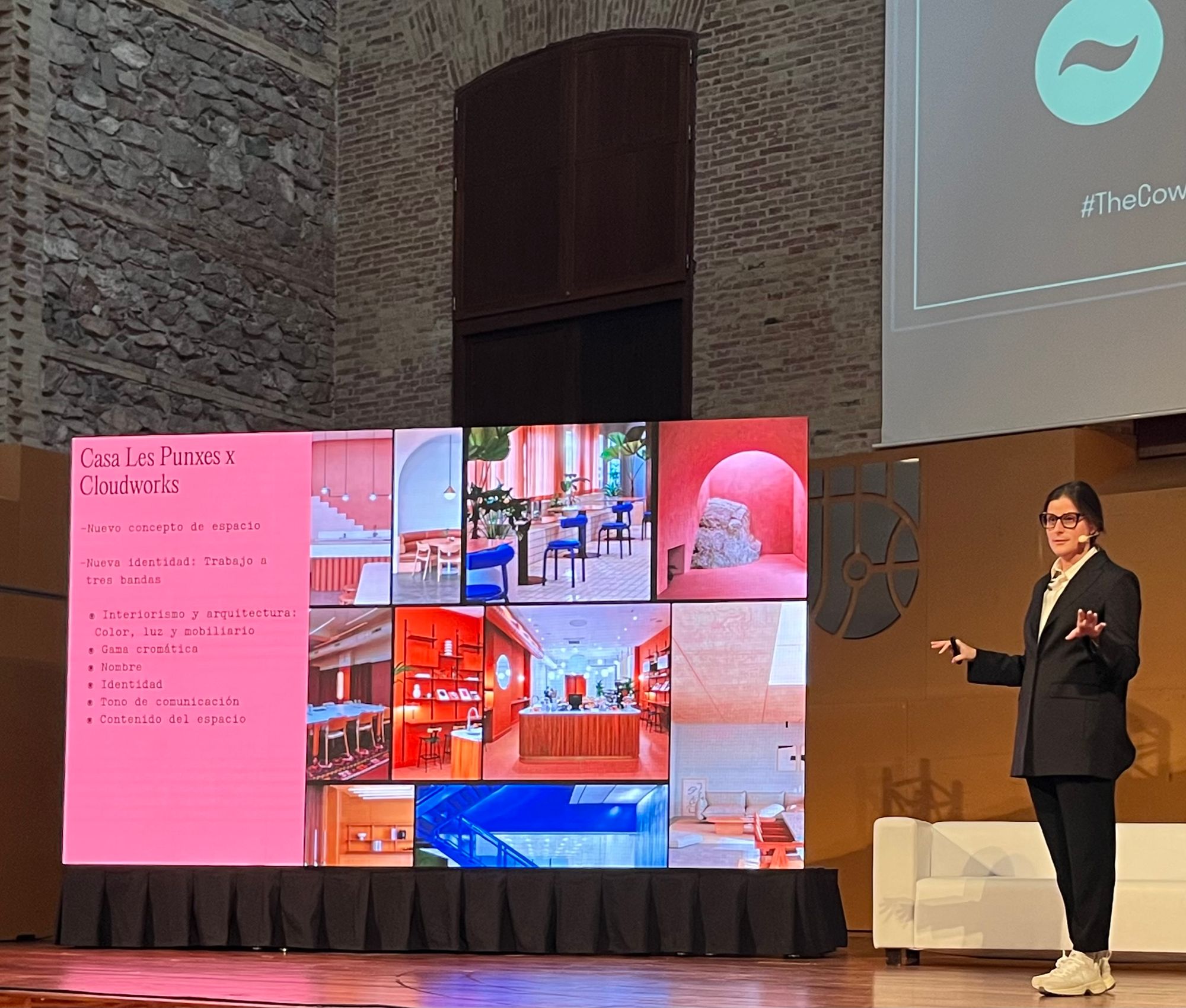
Coworking in Historic buildings — Marta Gracia, CEO of Cloudworks
Preserving areas and buildings of historical importance is essential for future generations to learn about the past. However, the challenge is to maintain these buildings up, as there is not always enough money for that. Marta Gracia, CEO of Cloudworks, came up with a great solution to this problem: she created a coworking space in a historic building. She shared with us the inspiring story of Casa Les Punxes in Barcelona, turning the space from a derelict building site into a modern, bright coworking space.
She shared with us a beautiful visual presentation showing the transformative process of the restoration. The space includes a café, a shop, and a panoramic rooftop terrace. The transformation was not without its challenges, as it was essential to honor and preserve the memory of the historic building whilst also creating a contemporary and welcoming space. However, due to the significance of the building, the space is a distinct brand in its own right as Casa Les Punxes X Cloudworks.
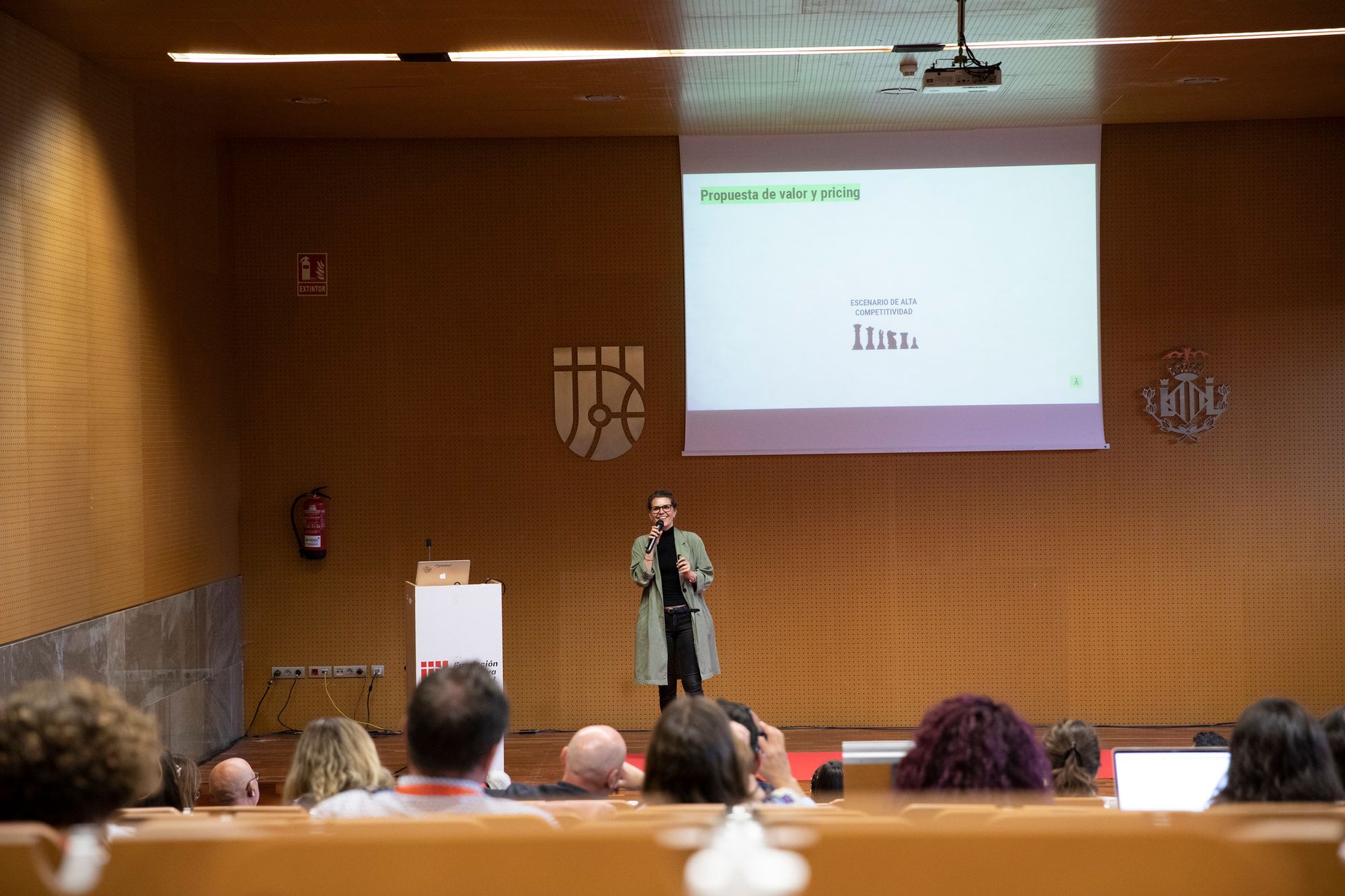
Aticco: A year of learning — Naiara Charler, Chief Innovation Officer at Aticco
The Aticco ecosystem ranges from workspaces to coliving and accelerators, and Naiara Charler was kind enough to walk us through their learnings from the past year. These learnings included market analysis and thinking about future scenarios that can be prepared for. The first of these, as we previously heard, is how competitive the coworking market is, and how finding the right spot in that market is essential for success.
There are also additional challenges to consider: while the demand for coworking spaces has increased post-pandemic, the cost of operation has also risen sharply. This means that operators must raise their prices to be profitable, but there is a fine line, as too much of a price hike can deter potential customers. In a highly competitive market, finding this line is hard, so operators need to add intrinsic value to their space that customers will appreciate.
Aticco has found its place in the market and its selling point with all-inclusivity. This means that customers have access to unique and valuable amenities such as a gym, parking, and even a pool. This, coupled with excellent customer service and events, has appealed to many would-be coworkers and has led to Aticco's success .
Aticco has managed to keep rising costs in check by focusing on efficiency and, instead of purchasing buildings, they developed meaningful relationships with building owners to enhance the spaces. Naiara also told us about staff retention, specifically which roles are business critical, and that offering an attractive workplace with good benefits helped to retain the staff that makes the business shine. Not only that, but having a happy and empowered team is a must, and businesses should not skip this ever.
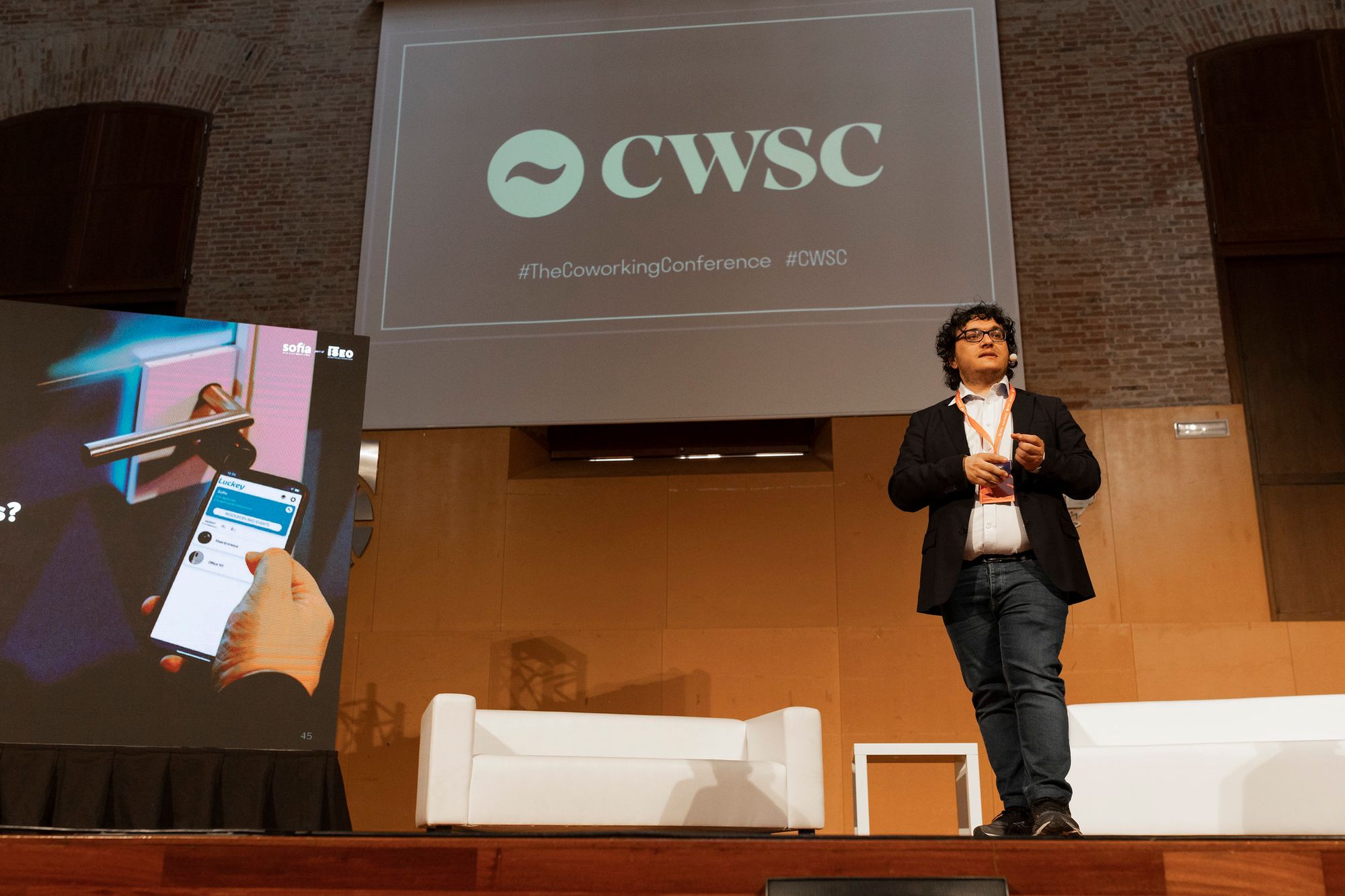
The last talk before lunch was held by Alessandro Nacci from Sofia Locks part of ISEO. Alessandro’s talk focused on the reasons why fully automated access is key to running a coworking space efficiently. He backed this up with real-world examples from studies showing how spaces are streamlining their operations by using automated access.
The amount that can be saved was astounding, in one case a space is saving 70,000 Euros per year, just by changing to physical access. Cobot is no stranger to this either, we have seen many spaces take this step in automating their operation, allowing for more time to focus on more important things such as the community. For best effect, door access systems need to be smoothly integrated into a management system for further automating operations. That is why Cobot has already added Sofia to our integrations.
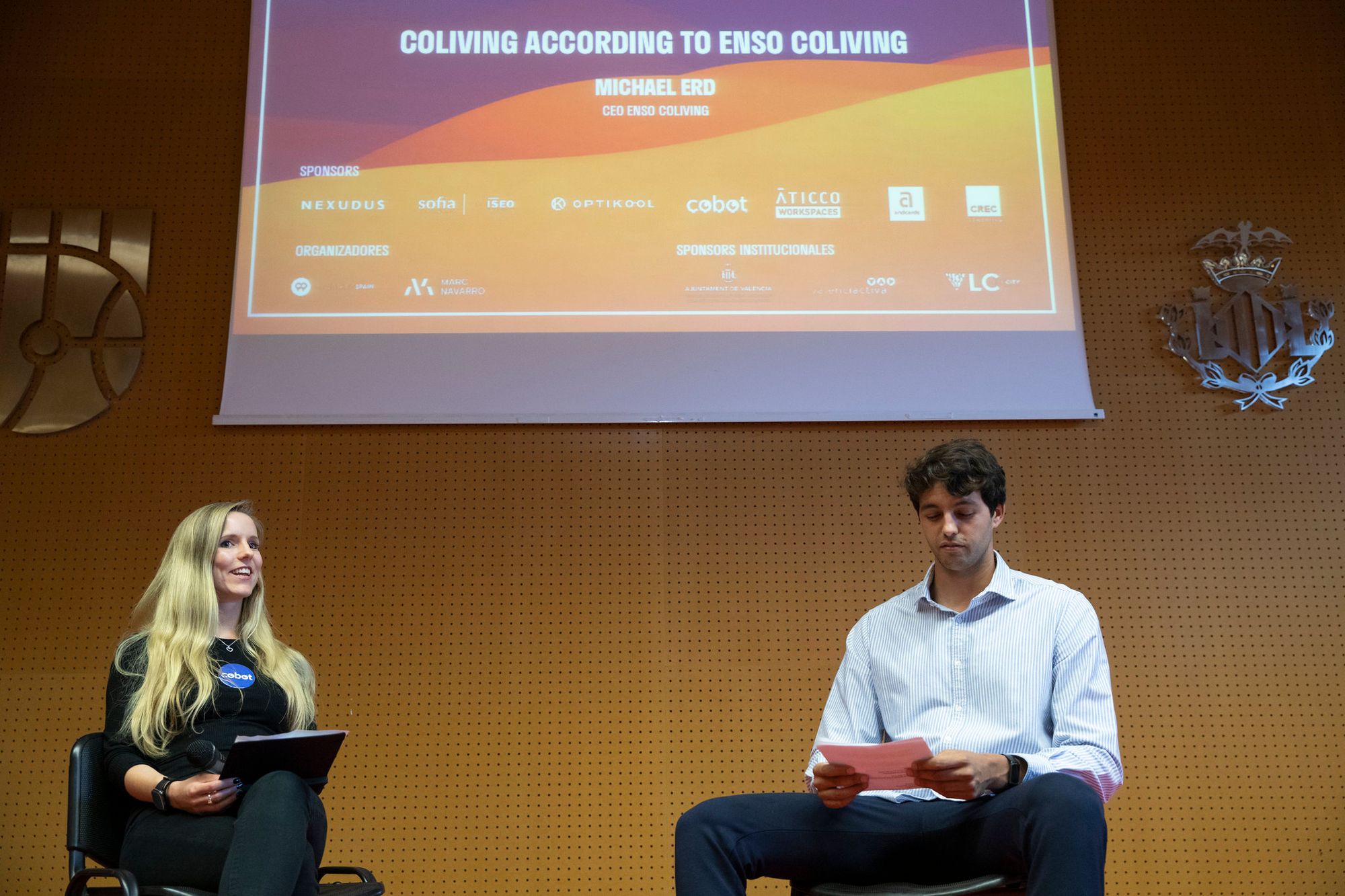
Coliving according to Enso coliving — Michael Erd, CEO at Enso Coliving and Laura Tump, Cobot.
After lunch, the focus shifted to Coliving, where Michael Erd, CEO of Enso Coliving, was joined on stage by Laura Tump from Cobotto to talk about the challenges and keys in the coliving industry.
Michael highlighted the importance of asset management, and of decentralization. The company doesn't own entire buildings, but many individual apartments, this means allows for the rotation of rental spaces, which directly leads to greater growth. Enso coliving has more than 350 rooms across Barcelona, Madrid, Valencia and Malaga. The keys that Michael highlighted for the success of Enso were:
- Flexible rental periods and financing
- Comfort
- Community
Enso places more emphasis on effective matchmaking rather than on 100% occupancy of their spaces. With a waiting list of well over 400 people, it is no secret that there is a bustling market for coliving. However, to create a waiting list that allows for matchmaking, Enso has experimented a lot with pricing to find a balance between demand and quality.
However, Michael also highlighted some future challenges, namely the competitive nature of the coliving market, much like coworking. Therefore, positioning is key, for Enso it is location, location, location. Another challenge is regulation, e.g. there has to be the right number of bathrooms depending on the number of occupants, so selection has to be rigorous.
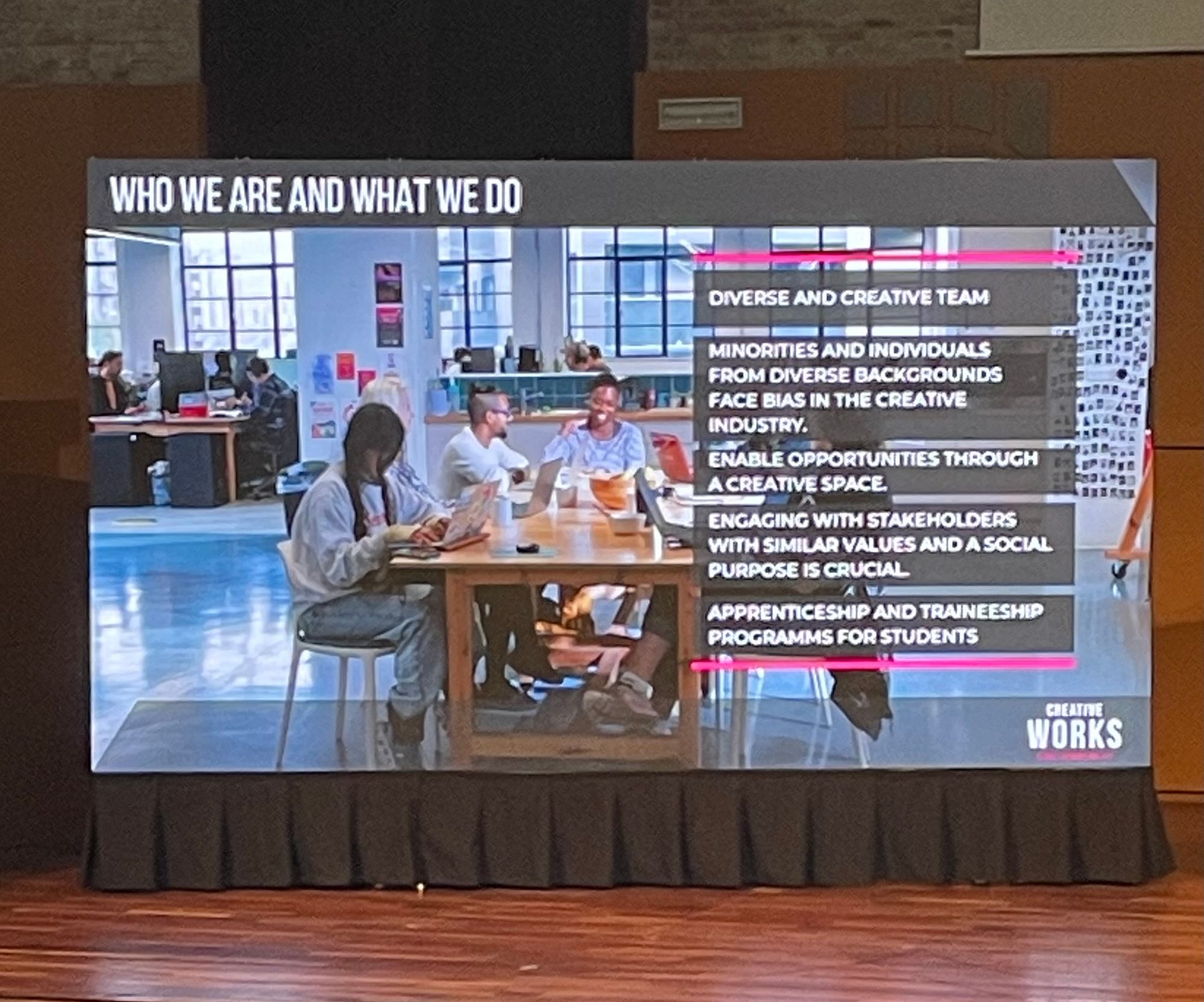
The Creative Works Model in London — Alexis Michaelides, from Creative Works
The last of the day's talks was presented by Alexis Michaelides of Creative Works, who showed us their open, welcoming space in thriving East London. Coming from a background in event creation, Alexis is well suited to maintaining a vibrant space. The space itself is also part of a creative and cultural development program in East London.
Even more interesting is Creative Works’ model, as with over 275 members, there is only 13% of members have a private office, instead the space focuses more heavily on open spaces full of creatives, working together in a community. The space also provides access to people from more disadvantaged backgrounds, giving them a chance at success and a first step into the creative industries.
We attended many talks on the first day, covering a wide range of interesting topics from within the coworking and coliving industry. From new trends, and best practices, to a look into the future of the industry. We like to thank everyone who presented and those we spoke to throughout the day. Be sure to check out our roundup of the second day of the conference, which will be published soon!
If you're looking to streamline operations within your coworking community, give Cobot a try. Feel free to contact us or sign up for a demo here and get started today.
Happy Coworking!

